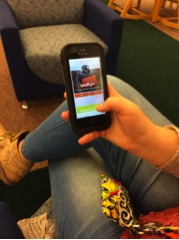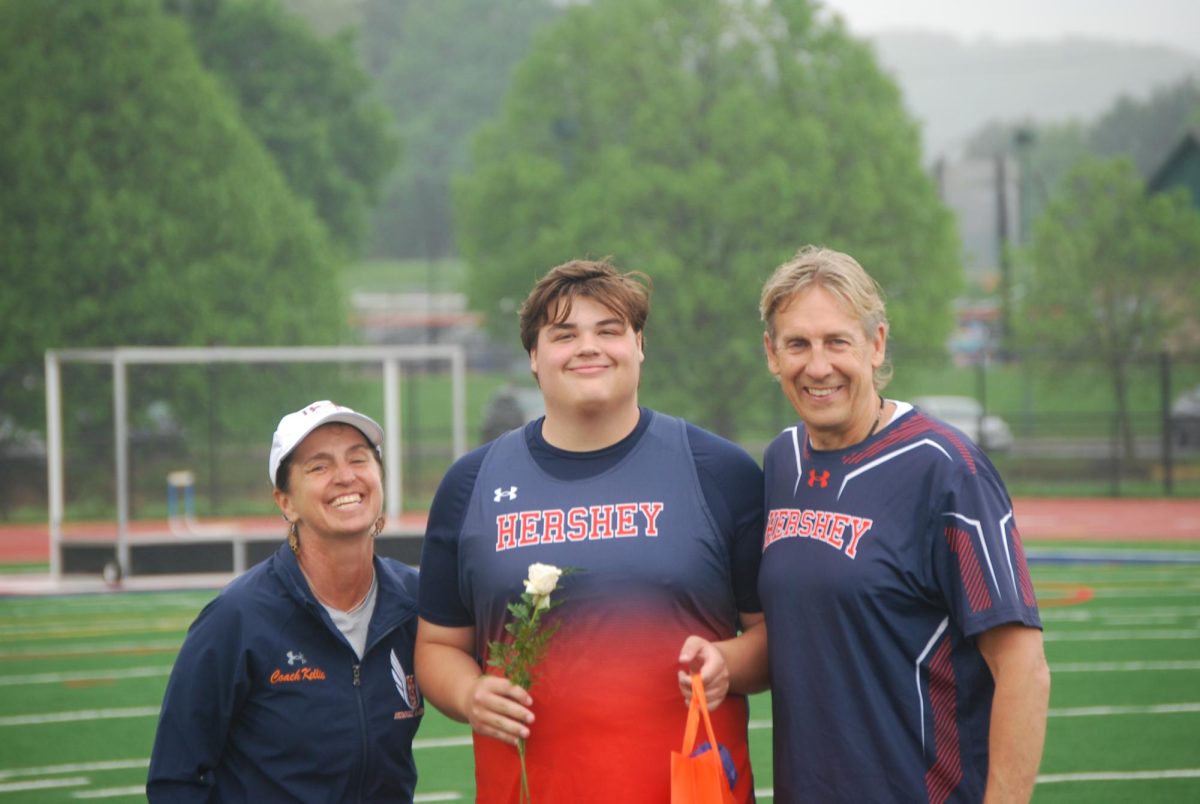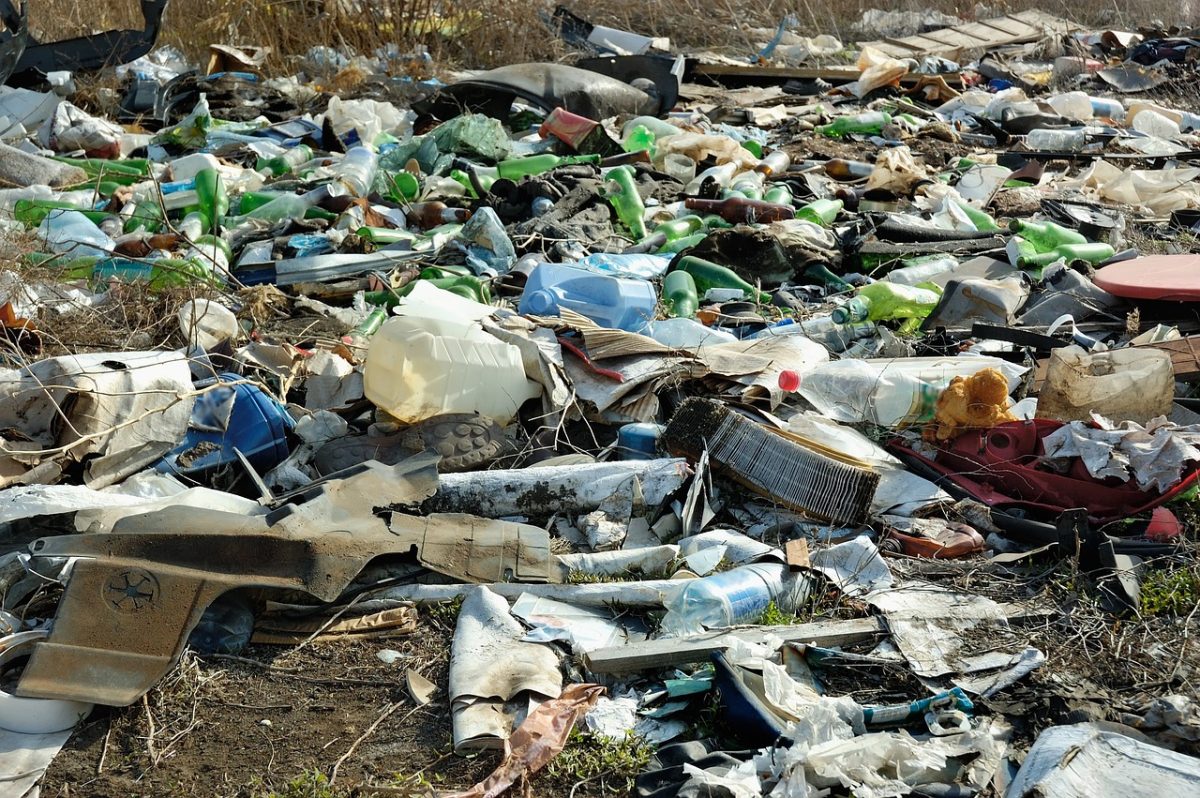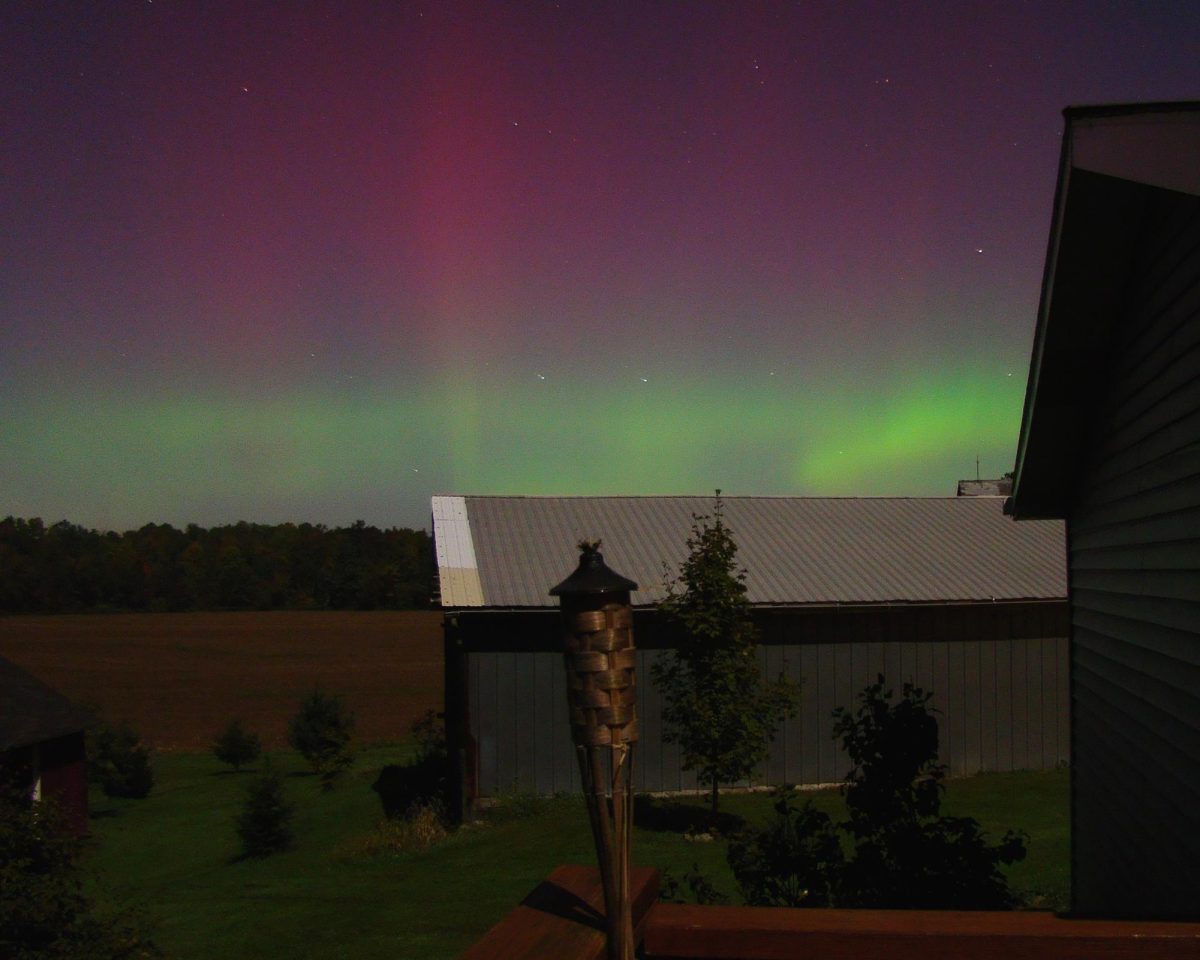By: Cara McErlean

Bathroom stall graffiti has gone digital.
Hershey High School has recently caught on to the latest technological fad: an anonymous message board app called After School. The app, which is specifically designed for high schoolers, allows students to post anonymous confessions, compliments, and criticisms relating to their school.
The iPhone application, created by Cory Levy and Michael Callahan, hit the iTunes store in October of 2014. Since then students have rushed to post their thoughts. The app is self-described as an “Anonymous confessions and message board for your school.”
Co-founder Cory Levy said the vision of the creators was to provide a spot where teens can share their thoughts without the fear of being judged, bullied, or reprimanded. Levy and Callahan wanted to produce a social networking app where everyone has an equal opportunity to get their voice heard.
“It doesn’t matter if you’re a freshman or a senior, football player or someone who usually keeps to themselves.” Levy said, “You don’t have to have 1,000 followers… in order to be heard.”
And Hershey students are definitely making themselves heard. According to a recent survey, around 45% of students have used the app at least once.
HHS senior Zac Som is an avid user of After School. He uses the app because the posts are humorous and it keeps him updated with what is happening around the school. Som says he likes the anonymous nature of After School because it makes everything seem “mysterious”.
Despite his appreciation for the app, Som does have some fears about the app’s effects. The rumors that spread throughout the app are almost always untrue and can be very hurtful, Som said.
School psychologist David Lillenstein also has his reservations about growing popularity of the app. According to Lillenstein, anonymity is easily used as a front for cruelty. By not having a specific person to hold accountable for each comment, Lillenstein feels that the content has the potential to take a turn for the worse.
However, Hershey’s After School message board is reported to be more inclined towards positive comments rather than negative ones. Out of the 45% of students that use the app, 38% report to have felt flattered by a comment made about them.
Comments are typically short quips along the lines of, “Bella is flawless,” “A hug from Kelly would make my day,” or “Cade has the best jaw line in the entire school.”
Senior Tyra Claypool is one student who believes in the positive power of the app. When Claypool sees messages directed towards her, her self esteem gets a little boost.
“It makes me feel hot,” Claypool said.
Lillenstein, on the other hand, is not convinced that After School has all positive effects. Although many of the comments are flattering or neutral, Lillenstein thinks the app has the potential to turn into a sour experience. “It only takes one negative comment to outweigh all the positive ones,” Lillenstein said.
Lillenstein also said that anonymity can dilute the credibility of a comment. “If you have something that is important to say,” Lillenstein said, “you should be able to stand by it with your name.”

After School has caused disruptions in several school districts across America. In December of 2014, Flushing High School of Flushing Michigan received an anonymous gun threat through the app. In addition, at least three Detroit area schools warned parents that the app was leading to cyberbullying, according to the Detroit Free Press.
After School was also briefly taken off the App Store in December of 2014. Recode.com reports that Apple made the decision to remove After School due to multiple complaints of “personal attacks” and “objectionable content”.
The app developers quickly made several changes to the app with the hopes of preventing inappropriate content. According to a statement released by After School’s moderators, the app now has a “zero-tolerance policy” for cyberbullying. Every comment is now reviewed by a human moderator before being published. Inappropriate content such as drugs, profanity, and sexual comments are automatically filtered out for users under 17 years old.
Levy said that After School’s moderators are “striving towards creating a positive environment for everyone.” By implementing several precautions, Levy hopes to ensure the safety of the app’s users.
“As any form of communication,” Levy said, “there are ways we can continue to improve and make it safer.”







